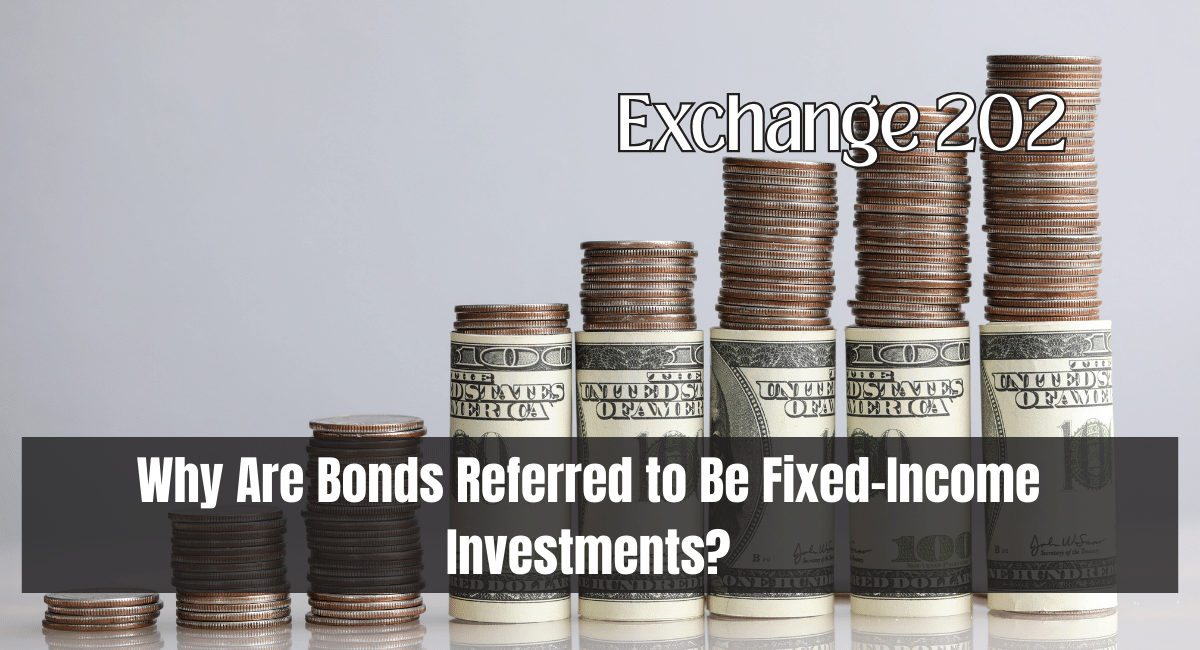Introduction:
When people talk about bonds in the context of investing, the phrase “fixed-income” frequently comes up. It’s possible that when you hear this adjective, you immediately think of reliability and consistency, but what does this term mean? It is necessary to investigate the fundamental nature of bonds, their qualities, and the benefits they offer investors if we comprehend why bonds are classified as fixed-income investments. In this piece, we look into the fundamentals of fixed-income investments and why bonds occupy a unique position in the overall landscape of the financial world.
The Nature of Bonds
Bonds are financial instruments that governmental entities or corporations can issue to generate capital. Investors who acquire bonds effectively loan the issuer for a fixed duration. As part of the agreement, the issuer assures that the principal amount, which refers to the initial investment, will be repaid upon completing the bond’s duration. Furthermore, the issuer commits to making regular interest payments throughout the bond’s lifespan.
Fixed vs. Variable Income
The term “fixed income” arises from the predictable nature of bond investments. Bonds provide a fixed stream of income to investors in the form of periodic interest payments. These payments remain consistent and do not fluctuate, hence the reference to “fixed.” This contrasts with other investments, like stocks, where dividends can vary based on a company’s performance and market conditions.
Characteristics of Fixed-Income Investments: Bonds
1. Regular Interest Payments
As mentioned, bonds provide a stable income stream through periodic interest payments. These payments are typically made semi-annually or annually and are calculated based on the bond’s coupon rate, set at the issuance time.
2. Return of Principal
Upon maturity, the issuer returns the original principal amount to the investor. This guarantees that, barring any default by the issuer, investors receive their initial investment back.
3. Predictable Income
Investors who rely on steady, predictable income find fixed-income investments attractive. Retirees and risk-averse individuals often prioritize this aspect of bonds to ensure financial stability.
4. Lower Risk Profile
Compared to equities, bonds are generally considered lower-risk investments. This is because bondholders are creditors of the issuer and have priority over equity holders in the event of financial distress or bankruptcy.
5. Diversification Benefits
Bonds offer diversification benefits by providing a counterbalance to more volatile assets in an investment portfolio, helping to mitigate overall risk.
Types of Fixed-Income Investments
There are various types of fixed-income investments, each with its own characteristics and risk profile:
1. Government Bonds
Issued by governments, these bonds are considered among the safest investments due to the backing of a sovereign entity. Examples include U.S. Treasury bonds.
2. Corporate Bonds
Issued by corporations, these bonds offer higher yields but come with varying levels of credit risk, depending on the issuer’s financial health.
3. Municipal Bonds
These bonds, which state and local governments issue, offer tax benefits and contribute to the financing of public projects.
4. Treasury Inflation-Protected Securities (TIPS)
The primary purpose of these bonds is to safeguard investors against the adverse effects of inflation by modifying the principal and interest payments in accordance with fluctuations in the Consumer Price Index (CPI).
Conclusion
Fixed-income investments, particularly bonds, offer investors income streams that are consistent and predictable, and they are not subject to the same volatility in the market as other assets. The phrase “fixed income” refers to the regular interest payments and the return of principal that bondholders may anticipate receiving from their investments. Because of this quality, bonds are an essential part of the financial portfolios of many people, particularly those whose primary concerns are maintaining a consistent income and minimizing risk. Fixed-income investments such as bonds offer a fundamental foundation of financial stability in an ever-changing economic landscape. This is true whether pensioners looking for a reliable income or investors diversifying their portfolios are the target audience.
